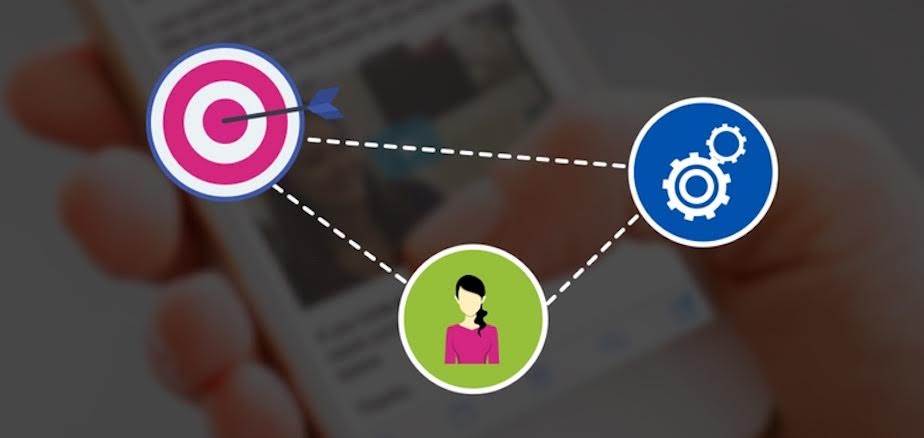Crafting 1:1 Conversations with Video Marketing Campaigns
Marketing

Marketers are responsible for warming up conversations with prospects, but according to SiriusDecisions, 67% of the buyer’s journey is done via digital channels before intent is demonstrated. Even more frustrating, sometimes it feels like these leads are languishing in the funnel somewhere between MQL and SAL.
Digital marketers can implement a potent combination of technology to solve this problem. Marketing automation, interactive video, and personalized content empower 1:1 conversations, while tech integrations between an online video platform (OVP), marketing automation platform (MAP), and customer relationship management (CRM) tool provide the back-end support for marketers to create visionary video marketing campaigns.
Keep reading to learn how to optimize your marketing campaigns and accelerate sales velocity.
How Video Analytics Power Marketing Automation
Using marketing automation to expedite communications and test interest is invaluable to a marketer tasked with touching thousands upon thousands of leads. Marketing automation compiles information about an individual’s interactions with your brand. A MAP collects blogs read, white papers downloaded, webinar registrations, and even, videos watched. The marketing automation platform then uses this information to construct a picture of the individual, including industry, company, position, and specific business needs.
Marketing automation reduces sales inefficiencies. When we add video analytics to this, that data becomes actionable, layering more information within campaigns.
Impressions. How many times the video player loads for the visitor.
Total views. How many times the viewer clicked play.
Play rates. How many views happened per total impressions.
Device types. Which devices your viewer is using.
Operating systems. What operating system your viewer is using.
Referral source. Where the viewer was before coming to your site.
Engagement score. How engaged the viewer is with the video. A low engagement score reveals the viewer abandoned the video without watching much. High engagement scores mean the video message aligned with the viewer’s need.
Interactivity allows you to expand the scope a single video, anticipating and reacting to various audience needs. In fact, 60% of interactive video users believe their content engages well or very well. These interactions create touch points which we can analyze and act on. Interactive video's deeper analytics give us additional video data points to segment leads and customers more effectively.
Why Interactive Video Aides Audience Identification
Video interactivity can supplement the identity work you are conducting with your marketing automation platform while making videos even more engaging. When marketers remove the passive element of “watching a video” and put the audience in control through interactivity, they create a wealth of opportunities. And lucky for marketers, each of these elements helps to further define viewers and their needs. Well-defined prospect information fuels sophisticated campaigns.
What Content Creates Stronger Audience Engagement
In marketing, knowing the wants and needs of your audience is paramount for two reasons.
- First, we desire to create content assets that will pull in interested parties during the awareness and engagement stages.
- Second, we want to build campaigns that resonate with our audiences. Respecting the user experience builds brand affinity and loyalty quicker.
Some examples of superior content experiences are curated video playlists, customized web experiences, suggested blogs, or individually personalized content hubs. There are varying levels of personalization, and interactive videos work in all.
3 Methods to Personalize Video Content
1. Hyper-Personalization
Video marketers already enjoy the “wow” factor of stitching information—often the person’s name—into the video itself. Hyper-personalized video content can make a good introduction, but should be followed by a selection of curated content. For example, why not send a welcome video after a blog subscription? Use hyper-personalization with caution, however, as it can seem gimmicky, or lack authenticity if inaccurate data is pulled through.
2. Curated Content
Using content efficiently means understanding when to send the right content. Of course, this can be automated through logic—think, emailing a customer a specific white paper. In some cases, however, this curated content can take on more interesting forms. Imagine content hubs with pieces pulled in through intelligent tagging or video gallery collections created by a marketing or sales rep.
3. Website Personalization
Advanced digital marketers are creating video-rich, personalized experiences on their sites. These are effective for both the visitor and the marketer. With website personalization, each site visit is different, and visitors can quickly and easily find the right content to meet their interests. Interactive video content can supplement and add to this experience in a layered, multi-dimensional approach. This is because as your viewer continues to interact with this personalized video, s/he adds even more data to an individual profile. This continues the feedback loop on which we can add even more personalized experiences.
While a powerful lead generator alone, video, when paired with marketing automation and other tools can provide even more robust data for marketers. Technology has enabled us to push our campaigns to new heights, but we have to use these tools to create fantastic brand experiences and replicate authentic conversations. The end result is the ability to hold 1:1 conversations with prospects and customers and create true video experiences that raise awareness, engagement, and conversions.
This blog was originally published on May 24, 2016. It has been updated with additional information.


